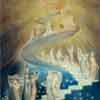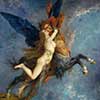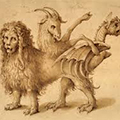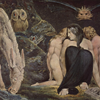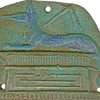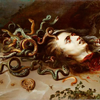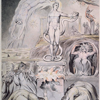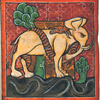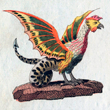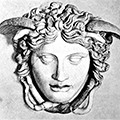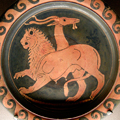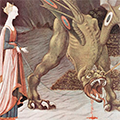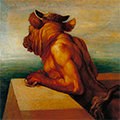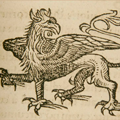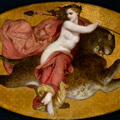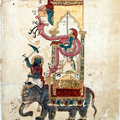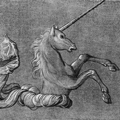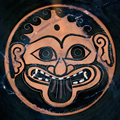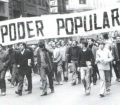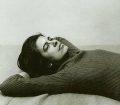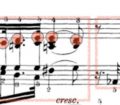Ovidiu Morar1
Abstract. After reading Norman Manea’s writings, one can notice that their major theme, that is, the main obsession of the author is the exile, as he has always considered himself an éxilé (exiled man), no matter where he happened to live. Both his fiction and his essays are autobiographical, speaking of the author’s traumatizing existential experiences: as a child, he faced the anti-Semitic laws culminating in the deportation in Transnistria, then the impossibility of re-integration in a still hostile society; as an adult, he suffered the trauma of yet another totalitarian regime (the communist dictatorship); and as an old man, that of the impossibility to adapt to the consumerist society that offered him refuge.
Keywords: Romanian literature, exile, Jew, anti-Semitism, totalitarianism, trauma
Resumen. La lectura de la obra de Norman Manea permite establecer que el tema fundamental de la misma, la obsesión principal del autor, es el exilio; que siempre se ha considerado a sí mismo un exiliado (éxilé), sin importar el lugar en el que haya tenido que vivir. Tanto sus escritos de ficción como los ensayísticos son autobiográficos, aludiendo a las experiencias traumáticas de su existencia: durante la infancia, ha de hacer frente a las leyes antisemitas que culminan con la deportación a Transnistria, y a partir de ahí la imposibilidad de reintegrarse en una sociedad aún hostil; como adulto, sufre el trauma de otro régimen totalitario (la dictadura comunista); en la senectud, la incapacidad de adaptarse a la sociedad consumista que le ha ofrecido refugio.
Palabras clave: literatura rumana, exilio, judaísmo, antisemitismo, totalitarismo, trauma
One of the foremost contemporary writers, Norman Manea was born in 1936 in Suceava, Romania, in a family of Jewish origin. Like the majority of the Jewish people living here, he was deported in 1941, by the Romanian authorities, allied with Nazi Germany, to a concentration camp in Transnistria, Ukraine. Unlike many others, he was lucky to survive and to return to his hometown in 1945 with the surviving members of his family (his grandfather died in Transnistria). He graduated the high school «Stefan cel Mare» (Stephan the Great) in Suceava, then he studied engineering at the Construction Institute in Bucharest, and after graduating in 1956, he started a career in the field of hydro-technique. In 1966 he published his first short fiction in the Romanian literary magazine Povestea Vorbei (The Tale of the Word), an avant-garde magazine that appeared in the early years of cultural liberalization in communist Romania, and was suppressed after six issues. Until he was forced into exile (1986) he published 10 volumes of short fiction, essays and novels more or less autobiographical: Noaptea pe latura lunga (Night on the Long Side), short fiction, 1969; Captivi (Captives), novel, 1970; Atrium, novel, 1974; Primele porti (First Gates), short fiction, 1975; Cartea Fiului (The Book of the Son), novel, 1976; The Days and the Game, novel, 1977; Anii de ucenicie ai lui August Prostul (The Apprenticeship Years of Augustus the Fool), essays, 1979; Octombrie, ora opt (October, eight o’clock), short fiction, 1981; Pe Contur (On the Edge), essays, 1984; and Plicul negru (The Black Envelope), novel, 1986. Due to their implied or overt social-political criticism, Manea’s writings were uncomfortable to the communist authorities, so that he had a lot of trouble with the censorship and with the official press, which launched brutal attacks against him. The volume On the Edge was awarded in 1986 by the Union of Romanian Writers, but the award was cancelled by the Council of Socialist Culture and Education for «ideological reasons». The last novel, The Black Envelope, was considered outrageous by the censorship and initially rejected, then totally transformed after a long and exhausting dialogue with the censors, who had suggested the author to gain a more optimistic view upon contemporary social reality, and therefore to suppress all the allusions to the social misery during Ceausescu’s regime.
Traumatized by the experience of 2 totalitarian regimes (the fascist regime of Ion Antonescu during the war, and the communist regime afterwards), Norman Manea decided to quit Romania in 1986, exploiting the opportunity of an invitation in the Federal Republic of Germany. The same year he arrived in the USA, where he was offered political asylum. Today Norman Manea is Francis Flournoy Professor of European Culture and writer-in-residence at Bard College in New York. In his native country he had been almost forgotten until 1992, when the publication in a Romanian translation of his essay Felix Culpa (Happy Guilt)—which first appeared in The New Republic a year before—provoked an immense scandal in the Romanian cultural media. Although the intention of the author was not to discredit the famous scholar and writer Mircea Eliade but to criticize his amnesia towards his fascist sympathies in the thirties (as a charismatic leader of the «young generation», Eliade had published several articles in which he had harshly criticized the Romanian democracy and had praised the fascist dictatorships of Mussolini and Hitler, offering also moral support to the Iron Guard, a Romanian fascist party), the essay was considered an attack against Romanian national values, and the author was covered with dirty epithets such as «traitor», «scum», «the dwarf from Jerusalem», etc.2 Echoes of this abnormal scandal can still be found in nowadays Romanian cultural press.
Although settled in the USA, Norman Manea has always considered himself a Romanian writer, and unlike many of his compatriots he has never abandoned his native language in his writings. As he stated in one of his interviews, «Language is home and homeland for a writer»
Yes, I also said that being forced to leave my homeland, I took with me the only wealth I had: my language. It was and it is my mobile home, as the snail’s home in its wandering. It remains to this day my homeland, my intimate refuge, my ‘lair’ where I try to regain myself and my writing, where I protect myself against the cacophony of the exterior chaos3.
Paradoxically, though, his works have been ignored in his native country until recently, while in other countries they have been received with great acclaim, and the author has been praised for his moral stand before and after the collapse of communism. Over the past 2 decades he has been granted numerous awards in several countries, and has been proposed as a candidate for the Nobel Prize for Literature by literary and academic personalities and institutions in the United States, Sweden, Italy, France, and eventually Romania. His most important volumes published after 1990 are Despre Clovni: Dictatorul si Artistul (On Clowns: The Dictator and the Artist), essays, 1997, 2005, 2006, 2013; Fericirea obligatorie (Compulsory Happiness), short fiction, 1999, 2005, 2011; Intoarcerea huliganului (The Hooligan’s Return), memoirs and essays, 2003, 2006, 2011; Vizuina (The Lair), novel, 2009, 2010... In the USA several of his books have been published in English translation: October, eight o’clock, On Clowns: The Dictator and the Artist, Compulsory Happiness, The Black Envelope, The Hooligan’s Return, The Lair, and The Fifth Impossibility: Essays on Exile and Language. Let us notice also that Manea’s books were highly appreciated by the American critique, and signaled in New York Times among the most important literary works of the last decades.
After reading Norman Manea’s writings, one can notice that their major theme, that is, the main obsession of the author is the exile, as he has always considered himself an éxilé (exiled man), no matter where he happened to live. Both his fiction and his essays are autobiographical, speaking of the author’s traumatizing existential experiences: as a child, he faced the anti-Semitic laws culminating in the deportation in Transnistria, then the impossibility of re-integration in a still hostile society; as an adult, he suffered the trauma of yet another totalitarian regime (the communist dictatorship); and as an old man, that of the impossibility to adapt to the consumerist society that offered him refuge.
The first volume of prose by Norman Manea, Night on the Long Side, was published in 1969, and consisted of several short stories on the theme of deportation, a tragic experience that deeply marked the author for the rest of his life, as, in almost all his works, he has obsessively referred to the nightmare of the concentration camp in Transnistria. The reduction of man to the condition of a sub-human was the premise of a terrible drama of frustration and alienation, of a sensibility continuously hurt by the aggression of the majority, for which the Jew has always represented the alien, that is, the unwanted par excellence. That could explain the inclusion of many of these texts in the next volumes, not only in those of short fiction (First Gates, 1974; October, eight o’clock, 1981), but also in novels (The Book of the Son, 1976; The Days and the Game, 1977), and the epic cycle composed of the volumes Captives, Atrium, First Gates and Book of the Son was explicitly entitled by the author Variante la un autoportret (Variants to a Self-Portrait). If in the first volume the stories were grouped at random, in the volume First Gates the order of the stories follows the main moments of the author’s biography: the deportation (The Sweater, Death, We Might Have Been Four, Pink Story, etc.), the return from the concentration camp and the difficult reintegration in the community from which he had been excluded (Tale of the Enchanted Pig, The Boots and the Violin, The Thief, etc.), and finally the erotic experience of the maturity (Iron of Love, Walk, Relative Movement, etc.). The most dramatic, of course, is the experience of the concentration camp, as described in the story The Sweater. The narration follows the winding stream of consciousness, chaotically capturing the main moments of the deportation: the long way to Transnistria in cattle wagons, the abandonment of the prisoners in the endless wilderness of the Russian steppe at night, the robbery organized by the local people, the miraculous survival of the family due to the hard work of his mother (who was knitting in exchange for the basic foods), the lice, the typhus epidemic which brought death in the concentration camp, and the complex of guilt and remorse felt by the protagonist who believed that the death of the young girl Mara was provoked by his envy (he had wanted the sweater knitted for her by his mother). The end of the story is apocalyptic: «the time itself had fallen ill». The dead haunt many other stories, such as the one entitled Death, in which 2 little girls imprisoned in the concentration camp are playing a game called «The mannequins», of which basic rule is to remain motionless on command. The narrator thinks their stillness has something ill-ominous, and, imagining that they will be shot, also like in a game, by the sentinels, finally believes he himself has been shot, although he has only been stung by a bee. The distance between reality and fantasy is abolished, the dream, the illusion being as real as reality itself. In the story entitled Proust’s Tea the well-known mechanism of the involuntary memory appears: the tea offered to the protagonist by a nurse in the waiting room of a railway station, on the hero’s return from the concentration camp, reminds him of his grandfather’s tea: like in a hypnosis session, the old man used to urge his entire family imprisoned in the camp to watch a piece of sugar hanging from the ceiling in order to imagine they were drinking sweet tea.
In the stories on the topic of the child’s attempt of reintegration in the community that had initially rejected him, the stress falls exclusively upon his exacerbated sensibility as well as his disproportioned reactions to the external stimuli that triggered them. Thus, minor events, such as cribbing or the disappearance of his pen at school, have catastrophic consequences for him, and the old frustrations and humiliations are converted into a vindictive will of power, like, for instance, in the dream of a pair of boots identical to those that the guardian of the concentration camp used to wear (see the story The Boots and the Violin). As for the erotic stories that refer to the years of maturity, they prove that the old complexes and terrors have not been entirely eradicated (for example, in the story Seascape with Birds, the protagonist sits on a gooseberry shrub and believes that their juice is his own blood sprung from a fatal wound); even love cannot bring him yet the expected relief, although the Shakespearean motto of the book seems to be optimistic: «Maturity is all.» It results, therefore, that in this cycle of narratives we could speak of a history of a long initiation in which the greenhorn is the author himself. However, in the story that gave the title to the volume October, eight o’clock, the atmosphere is gloomy, almost Kafka-like, as love is seen as a provisory remedy to despair, like «the bound between two bizarre orphans, abandoned in the large world, lost in the desert».
On the other hand, one may say that this first volume by Norman Manea already fixed his style, announcing a mature writer who had grasped the latest aesthetic formulae of the time as an answer to an almost general orientation in the Romanian prose of the seventh decade, in the direction of the experimentalism and textualism initiated by the members of the French group Tel Quel. Indeed, if we compare his first works with those of other Romanian writers who had made their début at the same time, we can identify some common characteristics of this «experimental» style (as Angelo Guglielmi called it): the obscurity, the confusion between dream and reality, the aestheticism and the infinite openness of the significance.
The volume October, eight o’ clock was published in an English translation in the USA in 1993, and was highly appreciated by the critics. For example, John Bayley wrote about it in The New York Times Book Review: in the following terms: «The reader becomes absorbed at once. The background is dreamlike but terribly familiar [...] Manea’s prose treads the edge of the poetry of nightmare».
The same cryptic style that deliberately cultivates mystery, the indefinite suggestion, and the metaphoric encoding also characterizes Norman Manea’s novels. The influence of the so-called «new French novel» (Alain Robbe-Grillet, Michel Butor, Nathalie Sarraute, etc.) can be detected in the poetics of the insignificant routine, the microscopic and hallucinatory descriptivism, and the spatial-temporal indetermination by the effacing of the borders, the use of the future, of the presumptive and of the conditional, so that things remain enveloped in an obscure halo, suspended in a limb of the possible and the ineffable. The plot has almost no importance in itself, as the stress falls upon atmosphere and upon the emotion transmitted to the reader, so that these novels can be considered lyrical par excellence. The first, Captives (1970), starts this way:
Long threads of rain, made thin, broken, yet dense, covering a counterrhytm of steps, and perhaps, on the corner of the street, the delayed perception of the rain, gradually victorious, persistent over the coat, through it; the coat—a bandage still vaguely wet for the shoulders and perhaps, beyond the corner of the street—beyond the tobacco shop—the completely wet bandage and the rain piercing through sleeves and shoulders, coldly enveloping everybody, like fear or only like amazement, or a warning to the passer-by, its indifferent prisoner.
The streets get intersected in the angle of the building—the corner of the street—perhaps the mere place, the proper frame for another revolt, a more spectacular one perhaps, a sort of ironical non-violent begging, a revolt that is spectacular because of its total lack of violence one can see in the absent-minded gestures of the young man with wild beard, with his hair chaotically grown over his nape, in locks, covering his ears, long curls, of a grown wild boy, curls caught in the light of some delicate, blue, defiant flowers.
There, on the corner of the street, he should have stood still in the scarce rain, under their gaze struck by his strange appearance of an almost tender monster, with pale face, lost under the invasion of the rebellious hair… Definitely, his hair should have been let at ease, loose and long over his inert arms, the same with his look4.
The plot advances very slowly, as it is continuously interrupted by long descriptive passages, in which insignificant objects and facts are mixed together in a baroque agglomeration, ad infinitum. The nominal style and the endless proliferation of objects, together with the passivity and uncertainty of the narrating ego, who almost disappears beyond them, reflect an incurable spleen in a degraded universe, deprived of signification. Most of Manea’s characters are, like Kafka’s non-heroes, weak creatures, poor puppets in the hands of a wicked master. A feeling of existential futility overwhealms them, baffling all their efforts. Their frustrations, their lost hopes had naturally generated the inner collapse, the existential void which condemns them to inactivity. Yet, this refusal of action cannot be equally interesting from the point of view of the narrative, so that, although interesting in small details, these novels are pretty difficult to read up to their end; they may become tiresome exactly for the tiredness followed programmatically.
Among the novels published by Norman Manea before leaving Romania, the most important was, doubtlessly, The Black Envelope, a parable of man’s alienation and dehumanization in the totalitarian system. As the author pointed out in the preface to the second edition (1996), the novel was conceived as the first part of a long-time epic project with a therapeutic role, under the circumstances of an increasingly difficult political situation in Romania; as he became aware of the impossibility to fulfill this project, he decided to publish the 400 pages he had written in 1984. The novel had a remarkable history, as it was published only after 2 years of endless negotiations with the censorship. The discontent of the censors started from simple words, such as: meat, cold, coffee, suicide, violation, breasts, God, anti-Semitism, whore, darkness, gay, denouncer, etc., and ended with the global vision of the book, which was considered to be «reductive, prevalently negative upon the realities of life, upon the social and moral climate in the middle of which the destiny of the characters evolves», and, in conclusion, one of the censors suggested the author to include other characters with «positive views upon life» and to eliminate the negative aspects, such as: «the images of the streets, the filth, the garbage, the darkness, the queues, the lack of goods, the tired, brutified people, the chaos, the shortage»5. The rejection of the manuscript brought the author the fame of a dissident, with negative and positive consequences at the same time: if his name became suspect in the mass-media, the novel was published in 20.000 copies which were sold in a few days. After he had arrived in the USA, the author decided to publish it in a new version, which appeared in 1995 in the USA and in Germany.
The atmosphere of the book is one of a nightmare. From the very beginning the author makes explicit references to the inhuman living conditions in the latest years of the communist dictatorship—the darkness, the lack of heat and hot water in the dwellings, the queues at the basic foods and other consumption goods, the prefab houses, the daily 2-hour TV programs, etc.—as well as to the terror and general suspicion due to the political police called «Security». An allegory of the totalitarian state is the «Association of the Deaf-mutes» ruled by the «Great Associate, the Stammering Man» (an allusion to Nicolae Ceausescu), and closely surveyed by the «Exemplary Institution» in the «Archive of Suspicion», in which every member of the association has a file and is permanently watched. «The Office for Thought Security. Five, six polished men. The one at the head of the table had just passed his little white freckled hand through his thin fair hair. He had opened the file, closed the file. Like the others, he had two files before him. The red file and the green file» (translated by Patrick Camiller). The «Perfect Handicapped» is «the new man», a monstrous creation of this dehumanizing system, that is, the perfectly adapted being who has mortified his consciousness and is ready to accept all possible compromises. The distinctive sign of this creature is a scarf above the eyebrow, a stigmata of an implacable moral degradation, and the typical case is the informer Toma A. Toma, who periodically sends his superior Orest Popescu reports about the surveyed persons. On the opposite pole stands the eccentric Anatol Vancea Voinov, called Tolea, a high school teacher who had been dismissed from his job on «moral grounds», then became a receptionist in a hotel in Bucharest, and, after having tried to investigate the circumstances of his father’s death, forty years before, he ends (like in Cechov’s novel Room No 6) interned in a mental hospital—who, in fact, are the only dignified people of the totalitarian regime. Other characters of the novel are Tolea’s ex-girl-friend Irina, the psychiatrist Marga, the journalist Matei Gafton, the ex-revolutionist Kir Ianuli, but none of them is a definite character, with a certain role in the action of the novel, for each consists of a mixture of moods melted in the amorphous magma of the narrative discourse, so that the individual voices become interchangeable and, eventually, futile.
Otherwise, the critics noticed the eccentricity of the writing in The Black Envelope, and even considered it exaggerated, as its result would have been an excessive discontinuity, therefore prolixity, the absolute relativity of the points of view until total pulverization of the perspective, the obscurity not only of the language, but also of significance, etc. Such objections are not completely unjustified, as discontinuity and obscurity, which are programmatically observed, can be tiresome for the reader. However, unlike his previous novels, a permanent tragic flow accompanies the introspection, keeping alive the interest of the reader, even if by the end of the book no other important event takes place. Exceptional, indeed, is the polyphonic overlapping of narrative voices / perspectives on the background of a crepuscular world.
The atmosphere and even the style of the novel reminds us somehow of Paul Celan’s poems, as some critics have noticed: «Reading 'The Black Envelope,' one might think of the poisonous 'black milk' of Celan's 'Death Fugue' or the claustrophobic air of mounting terror in Mr. Appelfeld's 'Badenheim 1939.' [...] Mr. Manea offers striking images and insights into the recent experience of Eastern Europe» (New York Times Book Review). The loneliness and alienation of the éxilé, the anguish of the individual in the totalitarian state are symbolized by the same motives of night, of darkness, as well as by the obsessive elipses and repetitions which express an onthological rout in front of the absurd. But beyond its political message (a critique of the aberrant communist regime), the novel can be considered a genuine open work, a stratified construction with a multitude of possible interpretations, which could stand for its main quality. «Writing carefully, Manea generates fresh, artful sentences easily, but he is also gnomic, as if reluctant to make things too easily understood», one of his critics asserts in a review published in PW in June 1995.
Although Norman Manea has never considered himself a dissident, one can grasp in his texts published before 1989, as well as in his interviews, many critical points of view towards the social and political realities of the time. For example, the volume The Apprenticeship Years of Augustus the Fool (1979), a collection of essays on the artist’s condition in contemporary society, contains a virulent critique against the attempt of the totalitarian regime to suppress the liberty of creation. Augustus the Fool, defined in the Larousse dictionary as «a comic type of the circus», is an avatar of the artist who, behind the mask of simulated madness, takes the liberty to openly criticize tyranny. Like the old «wise fool», he is at the same time uncomfortable and indispensable to Power by his critical attitude. The essays in question are among the most pathetic pleadings in favor of maintaining the liberty of creation in all political regimes:
No wonder why the artist, a permanent ‘suspect’, disturbs not only the pragmatic democracy of efficiency, but also the social totalitarian systems, economically and politically superannuated. Each of them tries by its own methods and means to omit, to subordinate or to destroy him, by the force of money and of power, allied to compromise his liberty, his originality, his independence, therefore his force, in order to convert them into sources of profit or of mystification6.
In Norman Manea’s opinion, a great writer is characterized not only by a high aesthetic consciousness, but also by an equally high moral consciousness. «As a public person, he must remain, at any price, exigent with himself and with the society, responsible, in a high sense, to the truth and to the collectivity, that straight consciousness in which his fellows can believe»7. High exigencies, no doubt, which one may say that Norman Manea has closely respected in a period of generalized promiscuity.
In 1986, Norman Manea took the difficult way of exile, a dramatic experience that added to the trauma of deportation in his early childhood, both exiles being caused by equally absurd totalitarian systems, as the writer pointed out in the essay The Exile from the volume On Clowns:
I was driven away from Romania first at the age of 5, in 1941, sent to death by a dictator and by an ideology. In 1986, at the age of 50, by an ironical symmetry, I had to leave again, because of another dictator and of another ideology. The Holocaust, the totalitarianism, the exile—these fundamental experiences of contemporary world—are intimately linked by the definition of the stranger and of the estrangement8.
However, the writer seems not to regret his exile, but even considers it a privileged experience that has helped him to know himself better:
I must confess, today, not only the damnation, but also the privilege to be in exile. I have eventually assumed this honor, for all which means suffering and epiphany, for the loneliness and the provocation and endless apprenticeship that it implies, for its desert and wealth, for the liberation from myself and for the struggle with myself9.
Being in exile, Norman Manea has remained obsessed with the problem of human degradation in the totalitarian system. In 1994, he published in the USA, Italy and England the volume of short fiction Compulsory Happiness, also published in Norway in 1995 and in Romania in 1999. Although completely different in subject and style, the 4 stories speak about the avatars of human sufferance during the communist regime; otherwise, the second story, entitled Robot Biography, had been included in the volume October Eight o’clock, which had been published during the communist epoch. The first fiction, The Interrogation, relates in an alert and incisive style, without the obscurity of the previous narrations, the ordeal endured by a woman imprisoned for political reasons. After she has suffered with stoicism the tortures of the guardians, she has to deal with a much more perfidious attempt to annihilate her moral consciousness when interrogated by an apparently humane guy, civilized, modest, but in fact much more monstrous than the others, as he uses all means to make her cooperate in denouncing all possible «class enemies». In the following stories the narration focuses on the tribulations of daily life during the last years of Ceausescu regime; insisting upon the general misery and irreversible degradation of human relations (see, for instance, the short fiction entitled The Trench Coat, where the narrator describes «the queues for bread and for milk and for toilet paper and for tooth-picks and», «the dark out in the streets and the cold inside the houses and the armed patrols and the nervous breakdowns and the abortions and the demolishment of the old old aristocratic neighborhoods and the nationalism»10). As Richard Eder remarked in an outstanding review,
Norman Manea's four novellas, written during the later Ceausescu years, offer a comparable contrast to other Eastern European dissident writing. Instead of the energetic irony, the ebullient absurdism, the sharp-eyed wit, we find a dreamy disconnection, a voice that shock has lowered, an air of sweetness driven mad. [...] Manea uses his stories not to add to the reality of the world but to explore its unreality11.
Let us add that the volume Compulsory Happiness had a great success in many countries, and that the author was compared, for the nightmare atmosphere of his fictions, with «the great prophets of catastrophe Kafka and Bruno Schulz» (Le Monde).
Perhaps equally troubling is The Hooligan’s Return, a memoir on the same obsessive theme, the exile. Like another famous Romanian Jewish writer from whom he borrowed the ironical epithet «hooligan», Mihail Sebastian, Manea sees himself as an outlaw, incapable to integrate in a community that has repeatedly excluded him, in the same way in which he feels not perfectly adapted in his overseas land of adoption. Not only the deportation, but also the re-integration in the Romanian society and, finally, in the American society do reveal the same tragic consciousness of alienation and self-reclusion. Therefore, the concentration camp, the communist penitentiary colony, the exile are perceived as the stages of a history of alienation which started, as the narrator confesses, as early as his departure from his mother’s womb (see the Freudian explanation of the anguish), and which is supposed to end only with his return there. An incurable loneliness, the loneliness of the Poet (the eternal Wandering Jew), which another great outlaw, Paul Celan, had defined with tragic irony, at the moment of his departure in the Western exile, as «an unannounced circus number.»
The idea of displacement, which is the main theme of the book, is suggested also on the level of writing. There is a continuous shift of time, space and person (the action is placed now in Suceava, now in Transnistria, now in Bucharest, the 1st person narration alternates with the 3rd person, the style changes from gnomic to direct, etc.). As already mentioned, Manea’s writing has always been challenging for the reader, and the writer even seems to detest the idea of simplicity, accessibility, which he equates with consumption / mass literature. In an essay posted on the Project Syndicate Web site in August 2011, entitled Against Simplification, he pointed out that in North America literary translation is too rare a practice, arguing that «imported books are thought to be too ‘complicated’, which is another way of saying that literature should deal with simple issues in a simple way, obeying the rules of the mass market, with its tricks of packaging, accessibility, advertisement and comfort». Of course, Manea’s style was formed in an elitist medium which at that time (the late sixties) had nothing in common with the mass culture of the Western World; on the contrary, almost all Romanian writers were cultivating then an Esopian, oblique manner of writing in order to hoax censorship and, second, in order to defy the so-called «socialist realism» that was officially imposed.
A critique of the mass society to which the émigré Norman Manea had to adapt in his unwanted exile can be found in his last novel, The Lair, which also develops his old obsessions: the repression in the totalitarian state, the «happy guilt» of Mircea Eliade, the collaborationism of many Romanian intellectuals with the political police during Ceausescu regime, etc. The main characters are three Romanian intellectuals who arrived independently in the USA after a traumatizing experience of the communist regime, paradoxically bound together by their love for the same woman, whom they all met in the same place in their youth. The narration melts their voices / points of view into an amorphous magma, so that one may say that all the characters are nothing but projections of the same ego, the author himself. The plot follows the tribulations of their daily life in a society that has never ceased to baffle them and against which they sometimes revolt, as we can notice in reflections like these: «(In America), universities are run by students, by their parents, their money and their lawyers. Professors are just part of the décor». Or: «Now and then a politician slips into the whirlpool of a short erotic adventure. An enormous scandal erupts, and the politician is ruined. In France he’d be admired. Since the beginnings of history the old adulterer has been proof that man lies in everything».
The intricate, labyrinth-like narrative corresponds to Manea’s old conception about writing. However, one may notice some concessions to the taste of the consumerist society that the author pretends to despise. First, the novel can be read as a thriller, as one of the characters (Peter Gaspar) comes to believe he is in danger of being killed after having received an anonymous letter containing a cryptic menacing message with a quotation from one of Borges’ stories. His paranoia is provoked by the death of another Romanian immigrant, a brilliant intellectual whose mysterious assassination in a public toilet was supposedly due to his anti-Nationalist articles (the real character who inspired the fiction was Ioan-Petru Culianu). Like in a commercial detective story, the author deliberately casts a veil of mystery upon the plot and involves many police forces in order to solve the case, but finally all is proved to have been the benign farce of a female student. Second, the novel can also be read as a love story, since all characters are (strangely indeed!) obsessed with the same woman, and there are also suggestions of a too close relationship between Professor Augustin Gora and a female student. One can still detect a third theme in close connection with the events of September 11—the terrorists theme—since there are explicit references to them at the end of the story. By using all these means of enchanting the American reader, Norman Manea seems to me now, despite all his declarations, more preoccupied with the capitalist idea of market success. However, I would prefer to end my commentary on his work with this splendid aphorism I found on the web, and which in my opinion best defines his anxious reflexivity: «The question of the stranger in a society which estranges everybody from it—while forcing everybody to assimilate their own alienation—takes cover under dubious and sinister masks».
1
Universidad Stefan cel Mare, Suceava, Rumanía.
Contacto con el autor: ovidiumorar10@yahoo.com
2
Norman Manea, Blasfemie şi carnaval, in Despre clovni: dictatorul şi artistul, Biblioteca Apostrof, Cluj, 1997, p. 222, my translation.
3
An Interview with Norman Manea and Oana Sânziana Marian, Translator of The Lair, Yale Press Podcast, August 16, 2012.
4
Norman Manea, Captivi, Editura Cartea Românească, Bucureşti, 1970, p. 5-6, my translation.
5
Id., Referatul cenzorului, in Despre clovni: dictatorul şi artistul, op. cit, p. 83, my translation.
6
Id., Anii de ucenicie ai lui August Prostul, Editura Cartea Românească, Bucureşti, 1979, p. 334, my translation.
7
Id., Istoria unui interviu: «Scriitorul-acea dreaptă conştiinţă în care semenii săi să poată crede», in Despre clovni: dictatorul şi artistul, op. cit., p. 181, my translation.
8
Id., Exil, ibidem, p. 191, my translation.
9
Ib., p. 195, my translation.
10
Id., Trenciul, in Fericirea obligatorie, Editura Polirom, Iaşi, 2005, p.160-161, my translation.
11
Richard Eder, «Where Everyone Wears a Trench Coat», Los Angeles Times, May 23, 1993.

